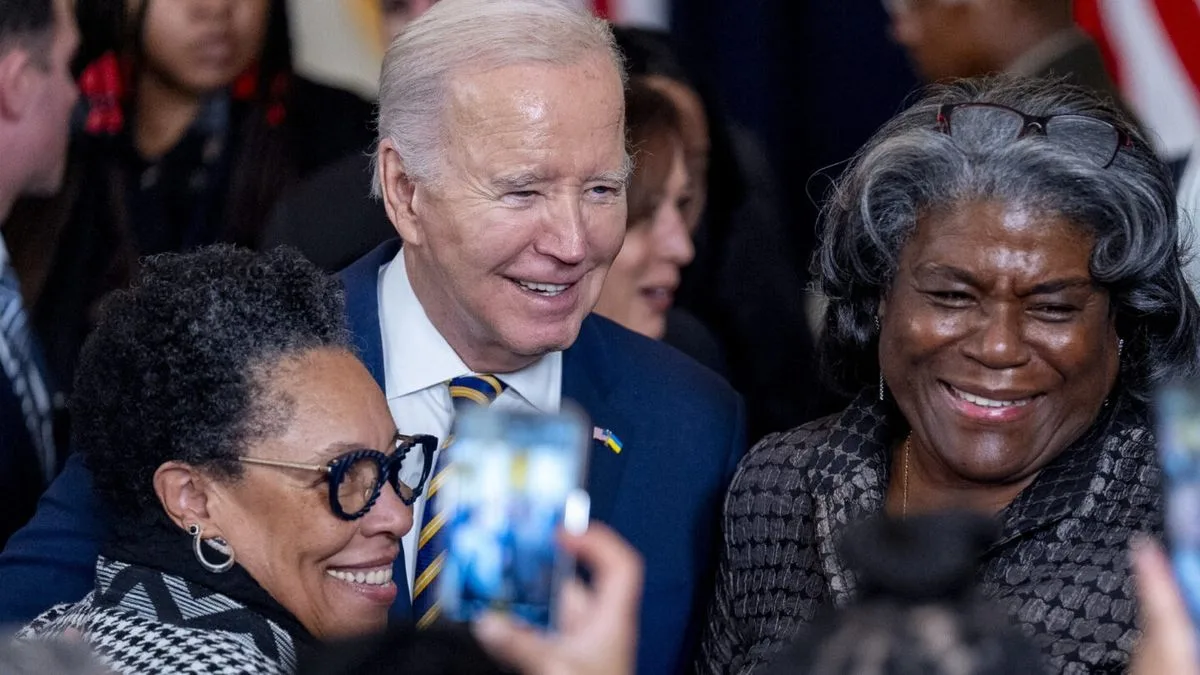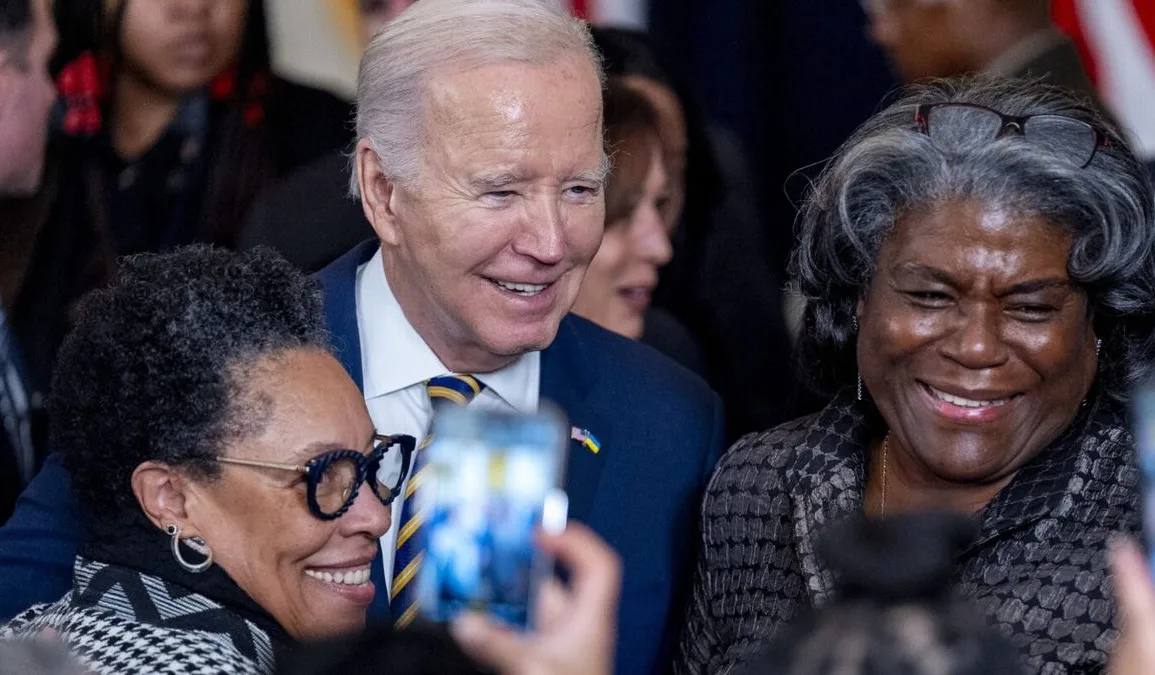
In the heart of Black History Month, a pivotal time dedicated to celebrating and understanding the profound impact of African Americans on the tapestry of American history, politics takes center stage. As the nation reflects on the immense contributions of Black Americans, both the Biden administration and the Republican National Committee (RNC) have launched initiatives aimed at securing the Black vote ahead of the crucial November elections. This year, the observance is not just about honoring the past; it’s a battlefield for the future of American politics.
Political Maneuvers in Black History Month
The Biden administration commemorated this significant month by hosting a gala at the White House, an event that saw the families of civil rights icons in attendance, underscoring the administration’s commitment to the Black community. This gesture was symbolic, reflecting a recognition of the struggles and achievements of African Americans throughout history. On the flip side, the Republican National Committee took a different approach, holding a reception to celebrate the contributions of former GOP officials and activists to Black communities. The underlying strategy for both parties is clear: to win the hearts and votes of Black Americans in the upcoming elections.
Despite President Biden’s historically strong support from civil rights stalwarts, recent times have seen a slight dip in his popularity among Black adults. The Republicans see this as an opening, albeit a challenging one, given the party’s recent policies restricting discussions of race and history in classrooms—a move criticized by Democrats as an attempt to whitewash America’s troubled history with racism. Nonetheless, the RNC is undeterred, planning to expand its community outreach centers in Black communities post-GOP primary, signaling an intensified effort to engage Black voters.
The Legacy and Future of Black History Month
Black History Month is more than a period of reflection; it’s a celebration of the enduring spirit and contributions of African Americans. From the arts to sciences, from politics to social justice, African American pioneers like Langston Hughes, Zora Neale Hurston, Louis Armstrong, and Jean-Michel Basquiat have enriched American culture and history. Their legacies inspire not only recognition but also a deeper understanding of the diversity and unity that their art promotes.
In Honolulu, Mayor Rick Blangiardi’s declaration of February as Black History Month highlights the nationwide effort to honor the history and accomplishments of Black Americans. Events across the country, including film screenings, workshops, and cultural festivals, serve as poignant reminders of the ongoing struggle against systemic anti-Blackness and the importance of antiracist behavior and social justice.
Psychology’s Role in Addressing Racial Inequality
The contributions of psychology to understanding racial hierarchy and inequality shed light on another dimension of the Black experience in the U.S. Despite the low representation of Black/African-Americans in the psychology profession, pioneers in mental health have fought against oppression, contributing significantly to the field. These efforts align with the broader themes of Black History Month, emphasizing not only the historical context but also the ongoing endeavors to bridge racial divides.
Resources for further reading on the history of psychology and Wikipedia projects related to Black History Month highlight the importance of education in combating racism. Understanding the historical context and current efforts to address racial divides in psychology is crucial for appreciating the full spectrum of Black contributions to American society.
As Black History Month unfolds, the actions of both the Biden administration and the Republican National Committee spotlight the political importance of the Black vote. The contrasting approaches of both parties, from celebrating civil rights legacies to expanding outreach in Black communities, underscore the dynamic interplay between history and politics. Black History Month serves as a reminder of the struggles, achievements, and ongoing efforts to ensure equity for all marginalized communities, reflecting the diverse and united fabric of American society.


